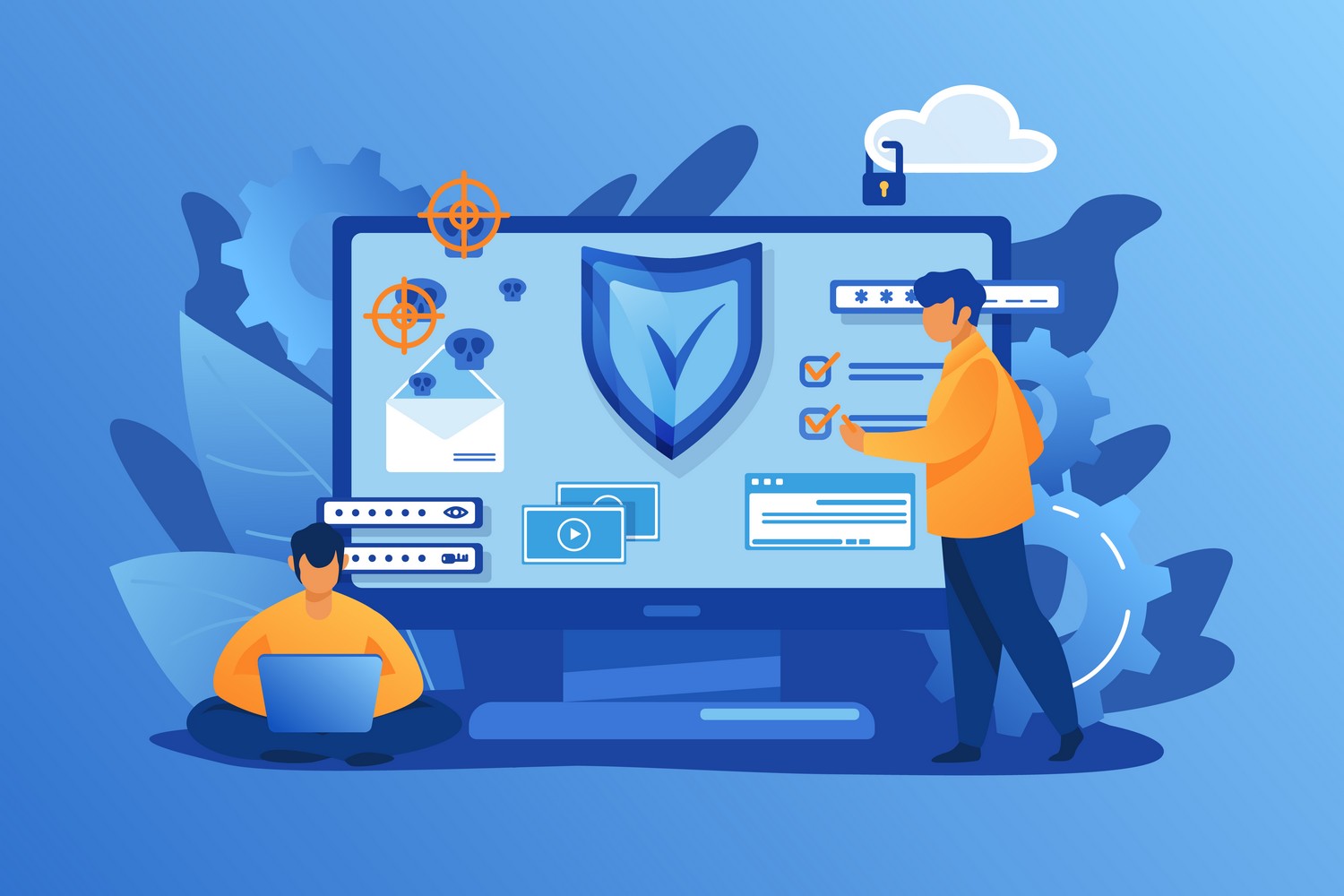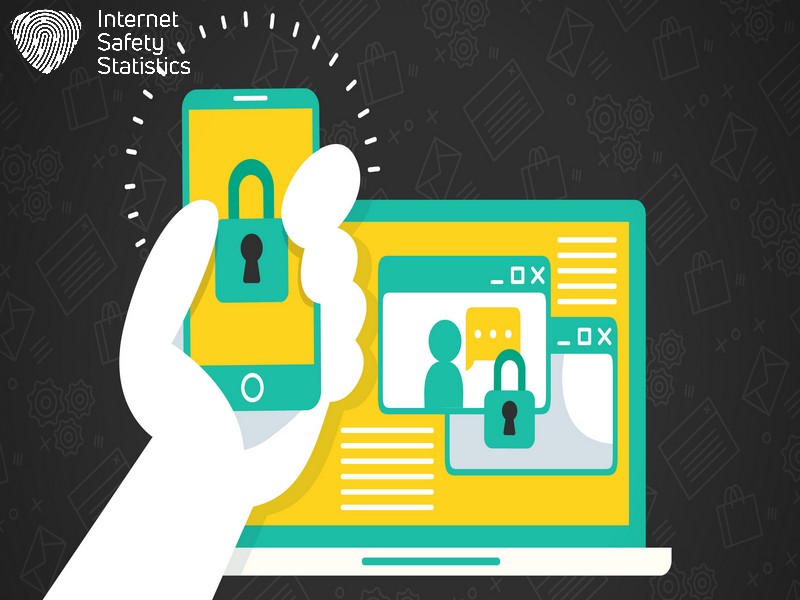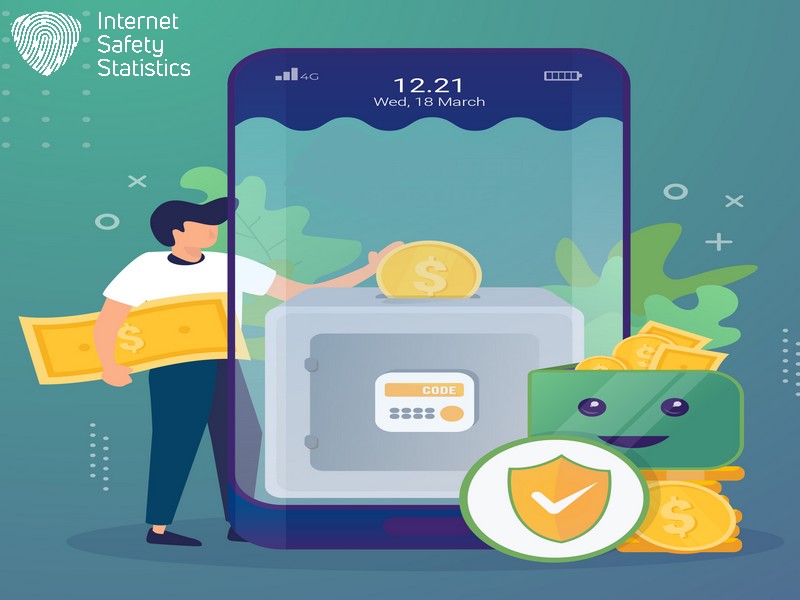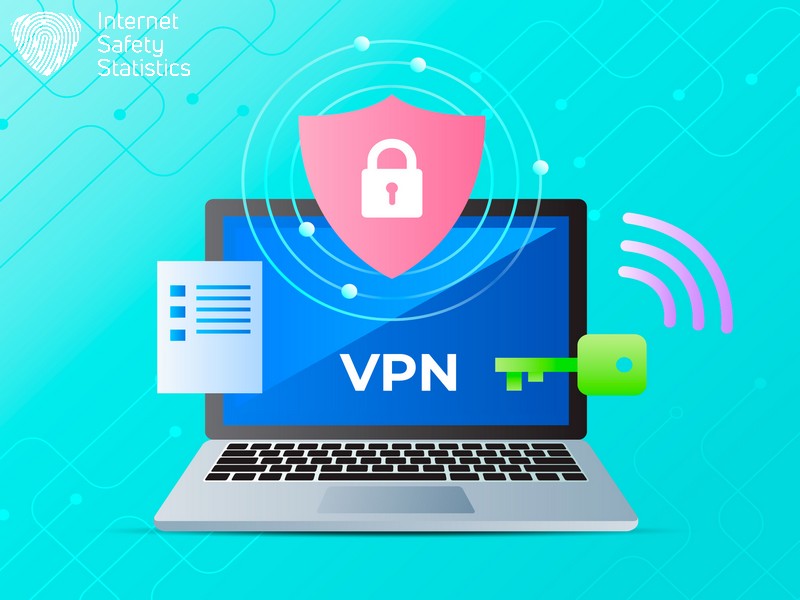
In today’s digital world, our personal and financial lives are entrusted to many online accounts. These accounts contain a wealth of sensitive information, from social media platforms to online banking. Unfortunately, this convenience comes with an inherent risk: cyberattacks. Alarming statistics reveal that someone becomes a victim of identity theft every two seconds, highlighting the critical need for robust account security measures.
This comprehensive guide serves as your ultimate checklist for securing your online accounts. We’ll delve into essential practices to safeguard your data, empowering you to navigate the digital sphere confidently and significantly reducing the risk of falling prey to online threats.
Importance of Securing Your Online Accounts
Moving on from the basics, understanding the importance of online security is crucial in a world where our lives are increasingly digital. Every day, cyber threats become more sophisticated; securing your data and personal information should be a top priority.
Identity theft prevention starts with you making sure your accounts are well-protected. Hackers and scammers are constantly looking for weak links in security, so it’s vital to establish strong defences. Keeping your sensitive details safe helps prevent fraud and protects your privacy. Consider how much private information—like addresses, financial data, and even intimate conversations—exists online.
If this info falls into the wrong hands because of inadequate cybersecurity measures, the consequences could range from stolen identities to emptied bank accounts. That’s why employing robust account security measures and staying vigilant about who has access to your details is not just smart—it’s essential for peace of mind in an ever-connected age.
Secure Your Devices
Ensure your devices have the latest security programs installed, and be cautious when using public Wi-Fi. Use standard Internet safety features to protect your personal information from cyber threats.
Have Up-to-date Security Programs
Update your security programs regularly to safeguard your online accounts from emerging threats. Update reliable antivirus software to protect against new malware and viruses. Update your operating systems, web browsers, and other essential software regularly to ensure you have the latest security patches. By staying up-to-date with security programs, you can minimise the risk of unauthorised access and data breaches, enhancing your overall online security.
Securing personal devices with the latest security updates is crucial for protecting sensitive information and mitigating potential cybersecurity risks. Keeping current on security programs helps defend against evolving cyber threats, providing a vital layer of defence for your digital privacy.
Be Cautious of Public Wi-Fi
After ensuring you have up-to-date security programmes, you must be cautious of public Wi-Fi. Public Wi-Fi networks can be vulnerable to cyber attacks, making it easier for hackers to intercept your data. When using public Wi-Fi, consider using a virtual private network (VPN) to encrypt the connection and protect your sensitive information from prying eyes.
Be mindful of which networks you connect to, and avoid accessing sensitive accounts or entering personal information while on public Wi-Fi. Scammers may set up fake hotspots with names similar to legitimate ones to steal your data.
Utilise Standard Internet Safety Features
It’s important to utilise standard Internet safety features to ensure online security. These features can help protect your personal information and data from cyber-attacks, scams, and unauthorised access. Ensure you have the latest security updates for your web browsers and operating systems to guard against known vulnerabilities.
Activate pop-up blockers and enable privacy settings on your browser to minimise the risk of encountering malicious websites or online tracking. Use secure and reputable antivirus software to provide additional protection against malware, viruses, and other online threats. Regularly review and update these safety features to stay ahead of evolving cybersecurity risks.
- Protect your devices from cyber threats like malware, viruses, and phishing attacks.
- Safeguard your personal information from being compromised by unauthorised access or online tracking.
- Minimise the risk of encountering malicious websites or pop-ups that could compromise your device’s security.
- Stay proactive in defending against evolving cybersecurity risks by regularly updating and reviewing these safety features.
Protect Your Account Logins

Use secure login processes, ignore unsolicited emails or messages, and be sceptical of unexpected online requests for personal information. Stay vigilant and keep your accounts safe from potential threats. Read on to discover more ways to secure your online accounts.
Ignore Unsolicited Emails or Messages
Disregard any unsolicited emails or messages asking for personal information. Instead, verify the legitimacy of such requests through official channels. Be cautious of unexpected online solicitations and refrain from disclosing sensitive details or clicking on suspicious links within these communications to protect your privacy and data security.
To shield yourself from scams and identity theft, remain vigilant against unsolicited requests for personal information. Delete any questionable emails immediately, check sender addresses before opening them, and avoid responding to unknown messages soliciting confidential data.
Be Sceptical of Unexpected Online Requests for Personal Information
When ignoring unsolicited emails or messages, it’s crucial to be sceptical of unexpected online requests for personal information. Scammers often use tactics that appear urgent or alarming, prompting you to reveal sensitive details. It’s important to verify the source of any request and avoid sharing personal information unless necessary. Protecting your privacy is paramount in safeguarding your online accounts and identity from threats.
Always exercise caution when faced with unexpected requests for personal information, as this could compromise your data security. Be vigilant in discerning the authenticity of such requests, and never hesitate to seek confirmation before divulging any sensitive details.
Use Secure Login Processes
To secure your online accounts, it’s crucial to implement secure login processes. Here are the steps to follow:
- Create strong, unique passwords for each account to prevent unauthorised access.
- Enable two-factor authentication whenever possible to add an extra layer of security.
- Avoid using public computers or unsecured networks to log into sensitive accounts.
- Regularly monitor your accounts for suspicious activity and immediately report unauthorised logins.
- Use a password manager to store and manage complex passwords for all your accounts securely.
Practise Good Cybersecurity Habits
Use discretion on social media, be cautious when using smartphones and tablets, educate children on online safety, and implement policies for employees. These good cybersecurity habits will help protect your personal information and ensure online security.
Use Discretion on Social Media
Be cautious with what you share on social media to protect your online security. Avoid posting personal information, such as your address or phone number, and limit who can see your posts. Scammers often gather information from social media accounts, so be mindful of the details you share to enhance privacy protection.
Consider adjusting privacy settings on social media platforms to control who can view your profile and posts. Think twice before accepting friend requests from people you don’t know personally, as this could expose your information to potential threats.
Be Cautious When Using Smartphones and Tablets
Exercise caution when using smartphones and tablets to protect your online security. Enable two-factor authentication for added protection against unauthorised access. Regularly update your device’s operating system and apps to safeguard against potential vulnerabilities. Utilise strong, unique passwords for each account on your devices to prevent unauthorised access.
Avoid connecting to unsecured public Wi-Fi networks when using smartphones and tablets, as they pose significant security risks. Consider installing reputable security software to help mitigate the risk of malware and other cyber threats on your devices. Be mindful of the personal information you share through apps and social media platforms, as malicious actors can exploit this data.
Educate Children on Online Safety
Be cautious when using smartphones and tablets, especially as children often have access to these devices. Educating them on online safety through age-appropriate discussions and activities is essential. Here are some important points to cover:
- Teach them the importance of keeping personal information private and not sharing it with strangers online.
- Discuss the potential risks of interacting with unknown individuals on social media or online gaming platforms.
- Guide them on recognising and avoiding online scams, phishing attempts, or suspicious links and emails.
- Set guidelines for responsible internet use, including time limits and appropriate content consumption.
- Educate them about the significance of strong passwords and the dangers of sharing login credentials with others.
- Encourage open communication so they feel comfortable reporting any concerning online interactions or content.
Implement Policies for Employees
Educating children on online safety was crucial in fostering a safe digital environment, and implementing policies for employees is equally important. Here are some key steps to consider when creating and enforcing employee policies for online security:
- Establish guidelines for acceptable use of company devices and networks, including prohibited activities such as visiting unauthorised websites or downloading unapproved software.
- Provide regular training sessions to inform employees about the latest cybersecurity threats and best practices for protecting sensitive data.
- Enforce strong password policies, requiring employees to use complex passwords and change them regularly to prevent unauthorised access.
- Encourage the use of two-factor authentication to access company systems and resources. This adds an extra layer of security beyond passwords.
- Implement protocols for reporting potential security incidents or breaches promptly to minimise the impact of any threats or unauthorised access attempts.
- Regularly update and patch company devices and software to address known vulnerabilities that cybercriminals could exploit.
- Clearly define roles and responsibilities related to cybersecurity within the organisation, ensuring that employees understand their part in maintaining a secure digital environment.
Additional Steps to Securing Your Online Accounts

Utilise incognito browsers, adjust privacy features on browsers, use a VPN, be cautious with gas apps and online shopping, lock personal photos, avoid autofill and be mindful of what you post.
Utilise Incognito Browsers
Switch to incognito browsers when browsing the internet. This feature prevents your browsing history from being recorded and ensures that cookies are not stored on your device. Doing so can protect your online privacy and prevent websites from tracking your activity.
Using incognito browsers is essential when accessing sensitive information, logging into accounts on public devices, or conducting private searches. It’s a simple yet effective way to safeguard your data and maintain online security. Take advantage of this feature to keep your online activities private and secure from potential threats or prying eyes.
Adjust Privacy Features on Browsers
Enhance your online privacy by adjusting the privacy features on your web browsers. Take control of your digital footprint with these important steps:
- Utilise built-in privacy settings: Most modern web browsers offer options to customise privacy settings, such as blocking third-party cookies and disabling tracking features.
- Enable private browsing mode: Activate your browser’s private or incognito mode to prevent it from storing browsing history, cookies, and other data.
- Install ad-blocking extensions: Consider adding ad-blocking extensions to your browser to minimise exposure to targeted ads that track your online activities.
- Manage website permissions: Review and adjust the permissions granted to websites, including access to location data, camera, microphone, and notifications.
- Clear browsing data regularly: Clear your browser’s cache, cookies, and browsing history to remove stored information that could compromise privacy.
- Use secure search engines: Opt for search engines that prioritise user privacy and do not track or store personal search data.
Use a VPN
Protect your online privacy using a Virtual Private Network (VPN) to encrypt your internet connection and shield your browsing activity from prying eyes. A VPN can also secure sensitive data and protect you from potential security threats when using public Wi-Fi networks. Furthermore, a VPN protects against cybercriminals trying to intercept your online communications.
By utilising a VPN, you can maintain anonymity while browsing the web, safeguarding your personal information against unauthorised access. Additionally, considering the increasing prevalence of online surveillance and data tracking, incorporating a VPN into your digital security arsenal is essential for maintaining control over your online identity and protecting your confidential information.

Be Cautious with Gas Apps and Online Shopping
Always be wary of potential security risks when using gas apps or shopping online. Choose reputable and secure platforms for your online purchases, and ensure that the websites are encrypted to protect your personal information. Look for signs of a legitimate website, such as a padlock symbol in the address bar.
It’s important to check reviews and ratings before using any gas app or purchasing online. Avoid saving sensitive information on these platforms, especially when using public Wi-Fi networks, as they can be vulnerable to hacking attempts.
Lock Personal Photos
Lock your personal photos to secure your online privacy. Use your device’s built-in security and privacy features, such as password-protected photo albums or apps that require a PIN code to access. Doing so can prevent unauthorised access to sensitive images and keep your personal information safe from prying eyes.
Furthermore, consider using encrypted storage options or secure cloud services to store personal photos. This extra layer of protection helps safeguard your private pictures in case of device loss or theft.
Avoid Autofill and Be Mindful of What You Post
When entering personal information, be cautious with autofill features, as they may inadvertently reveal sensitive details.
- Autofill can potentially disclose private information such as addresses, phone numbers, and credit card details without your consent.
- Exercise caution while posting personal information on social media platforms to prevent unauthorised access by scammers or hackers.
- Ensure that any content shared online does not compromise your privacy or security, especially on public forums or websites.
- When filling out online forms, be mindful of the information you provide and consider whether it’s necessary for the transaction or interaction.
- Utilise privacy settings to limit the visibility of your posts and profile to only trusted individuals in your network.
- To minimise the risk of potential security breaches, avoid sharing specific details about your location, upcoming travel plans, or financial transactions.
- Control the amount of personal data exposed to maintain privacy and security across digital platforms.
Get an Alias Email Address
Protect your online privacy by getting an alias email address. This separate email account can be used for online shopping, subscriptions, or any situation where you may not want to use your primary email. An alias email address helps minimise the risk of exposing personal information and reduces the clutter in your main inbox. Using an alias email address can also better protect you from potential data breaches and limit spam emails.
Once you have secured an alias email address, consider implementing additional steps to safeguard your online accounts. These measures include utilising incognito browsers, adjusting privacy features on browsers, using a VPN, being cautious with apps and online shopping, locking personal photos, avoiding autofill features on websites and being mindful of what you post on social media.
Remove Yourself from the Internet
To further enhance your online privacy and security, consider taking the proactive step of removing yourself from the internet. This can be achieved by contacting data brokers to opt out of their databases, which reduces the amount of personal information available online. Additionally, regularly reviewing and adjusting your privacy settings on social media platforms is crucial in controlling the information accessible to others.
Furthermore, consider using an alias email address for online accounts and communications to protect your personal information against potential data breaches or cyber threats.
Securing your online accounts is essential in today’s digital age. Implementing the ultimate online security checklist can protect your personal information and data from potential threats. Following these active measures can safeguard your devices, enhance your cybersecurity habits, and strengthen your online privacy. Take control of your online security to ensure a safer and more secure digital experience for yourself and those around you.
FAQs
What steps should I take to protect my online accounts?
You should follow cybersecurity best practices by managing your passwords securely, enabling two-factor authentication, and implementing other online security measures.
How important is it to keep personal information secure on the internet?
Securing personal information is crucial for protecting online identity and preventing unauthorised access to data; always use robust cybersecurity safeguards.
Can small businesses improve their cybersecurity, too?
Absolutely! Small businesses can safeguard their online presence by following a thorough data protection checklist and computer security protocols.
Are there simple tips for maintaining Internet privacy?
Yes, you can enhance your internet privacy by applying password management techniques and regularly updating your cyber security knowledge.
